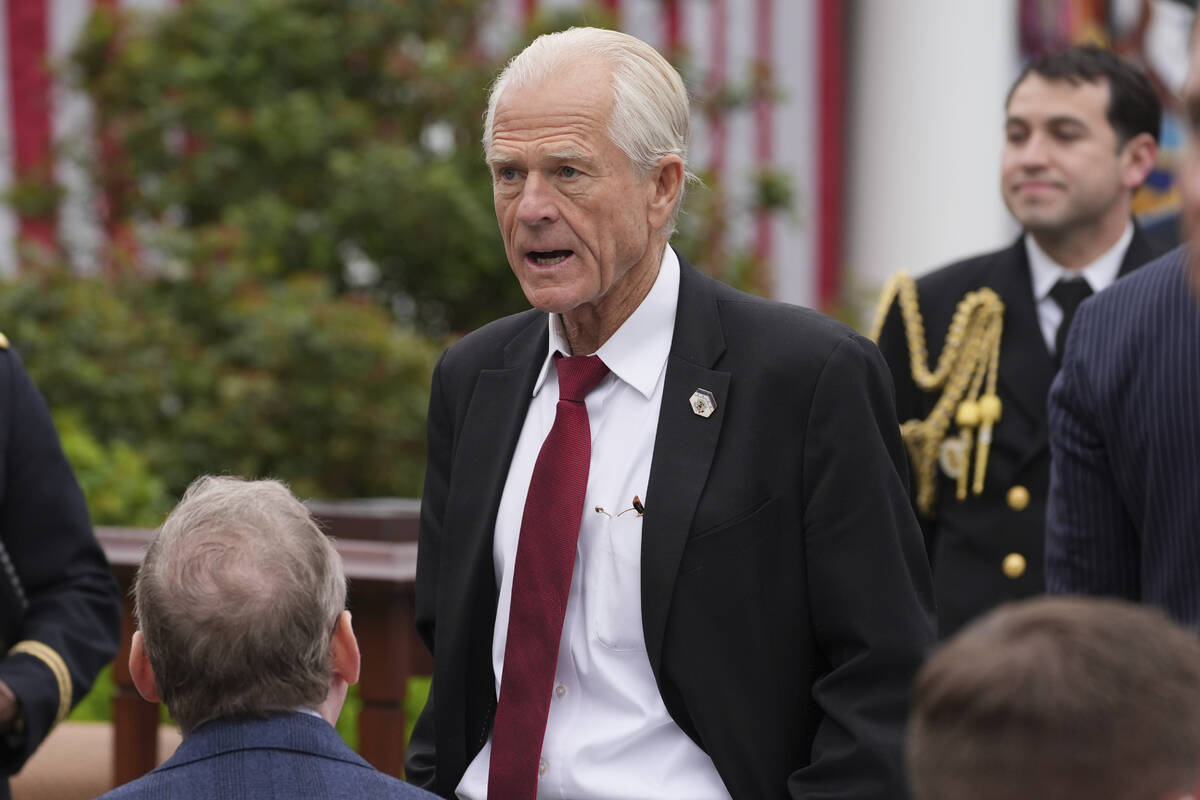COMMENTARY: The White House tariffs: blunder or brilliance?
Now that April 2 is in the rearview mirror (what President Donald Trump calls “Liberation Day” for American trade policy), the question remains: What precisely are we liberating ourselves from? And are we sure we’re not stepping into something worse?
If higher tariffs stay in place, it will be a punishing blow to global commerce. Americans should prepare for higher prices and slower growth. The question is whether this is a blunder or a high-stakes negotiation tactic.
The new policy sets a baseline 10 percent tariff on all imports, with significantly higher rates for goods from countries based on a senseless measure of trade and investment flows. The supposed rationale is that other nations charge us far more in tariffs than we charge them. If that were true, Trump would have lowered America’s trade taxes on free-trade nations such as Singapore and Australia.
Indeed, the United States has long operated under an imbalance regarding trade barriers, and it’s also true that we run a substantial trade deficit. How big of a problem is this really?
Many politicians and pundits decry the trade deficit as evidence of economic weakness. That’s a misunderstanding of how global commerce works. The United States is the world’s largest economy and, naturally, it consumes more than it produces in specific industries.
The dollars we send abroad don’t just vanish. In fact, they return to us through investment, asset purchases and other channels. While the trade deficit might be harmful, the broader balance of international payments remains essentially even. In short, the United States isn’t “losing” money; it’s just circulating in a different way.
Despite this economic reality, the administration is selling tariffs as a silver bullet to fund tax cuts and reduce the national debt. That’s wishful thinking. Tariffs are a tax on American consumers, not foreign governments. While they might generate revenue, they do so at the cost of higher prices on goods, reduced purchasing power and economic inefficiencies.
Any hope that tariffs will lead to meaningful deficit reduction ignores the fundamental math. Substituting one tax for another doesn’t solve the spending problem. Without sustained budget surpluses, reducing the national debt remains a fantasy.
International trade has been one of modern history’s greatest drivers of economic growth and price stability. The ability to source goods from the most efficient producers, regardless of location, has allowed businesses to keep costs down and consumers to enjoy lower prices. Inflation has remained relatively subdued for decades because of the integration of global supply chains. When American consumers can buy goods from low-cost producers, their dollars go further. Tariffs disrupt that dynamic by artificially raising prices, making businesses and households worse.
Of course, we don’t live in an ideal world where all trade is free and fair. Many countries impose higher tariffs and barriers than what the United States charges. Addressing those trade barriers is a worthy goal, but the question is whether blanket trade taxes on American households are the best means of achieving it.
If this policy leads to a trade war, the U.S. economy will take a hit. While proponents argue that tariffs will bring in “hundreds of billions” of dollars, they overlook who foots the bill, American consumers and businesses.
If these tariffs are merely a bargaining chip in a broader negotiation to achieve fairer trade agreements, there might be a silver lining. If other nations agree to lower their tariffs in response, the long-term benefits could outweigh the short-term pain. However, if no such deal materializes, the United States will be left with a more expensive economy, weaker growth and higher inflation, all in the name of a misguided economic strategy.
One thing missing from this conversation is the role of public engagement and education. Trade policy affects every American, yet too few understand how it works or how it affects their lives. Without a better-informed public, economic decisions are left to policymakers who may have more interest in political gains than sound economic principles.
Americans must demand transparency, ask hard questions, and engage in discussions about how trade policies shape their future. Schools, media and civic institutions should play a greater role in fostering this understanding, ensuring that the public can advocate for policies that promote long-term economic prosperity rather than short-term political victories.
So, is “Liberation Day” an economically costly blunder or hidden brilliance? That remains to be seen. The next few months will reveal whether this is a masterstroke of negotiation or a costly miscalculation.
Les Rubin is the founder and president of Main Street Economics. He wrote this InsideSources.com.

















